Nov. 19, 2018
Building a peaceful world involves more than ending war. A peaceful world is one in which justice thrives, everyone’s rights are respected, and people have access to essentials. The Carter Center has dozens of programs and projects dedicated to making the dream of peace a reality. This slide show explores a handful of them.
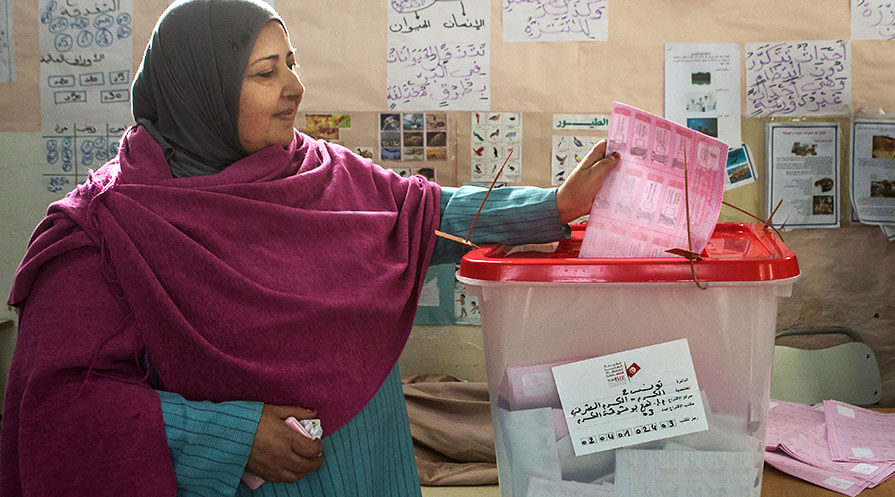
Election Observation: The Carter Center has monitored 107 elections in 39 countries. Here, a woman in Tunisia votes in the first truly democratic presidential election since its long-term dictator was forced from office during the Arab Spring. The Center continues to work in Tunisia, offering support to the government and civil society in this new democracy. (All photos: The Carter Center)
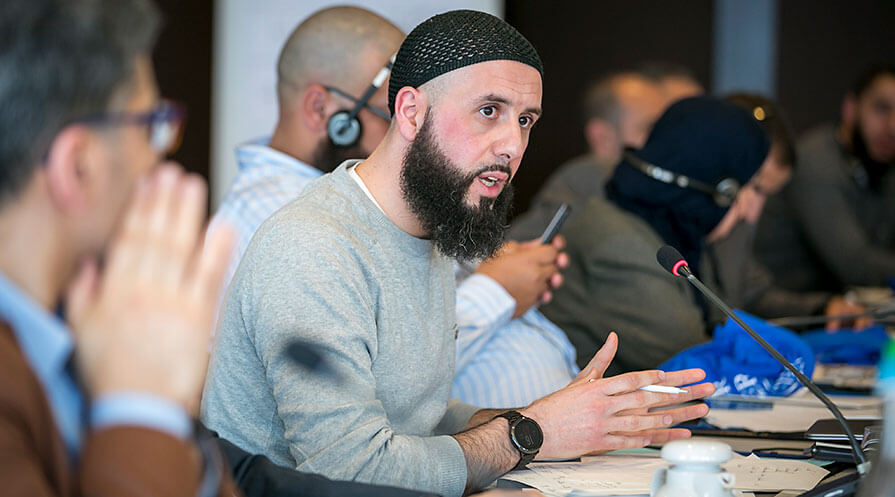
Preventing Violent Extremism: The Center analyzes the recruiting propaganda of Daesh (also known as Isis) and trains religious and community leaders to create their own messages to inoculate youth from the lure of violent extremism and to devise ways to prevent the spread of Islamophobia. Workshops have been held for leaders from Morocco, Tunisia, the United States, Belgium, and France, home to the imam in this photo.
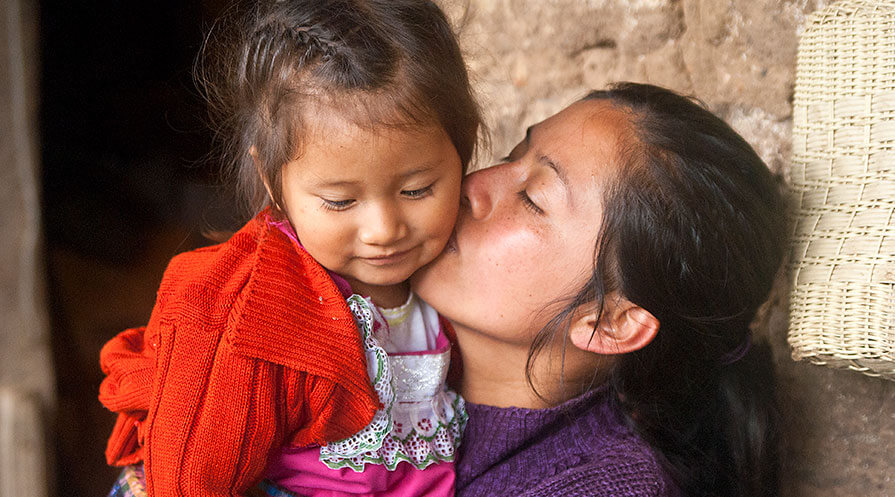
Access to Information for Women: Carter Center studies in Guatemala, Liberia, and Bangladesh found that women have a harder time accessing public information than men do. The Center partners with local organizations to build awareness and employs information liaisons who meet women where they live to help them file and follow up on information requests to the government. The goal is to help women like this mother in the department of El Quiche create a better life for herself and her children.

Human Rights: Human rights lie at the core of everything The Carter Center does. In West Africa, we’ve partnered with Tostan to train community leaders to launch their own human rights efforts where they live and work. Asmau Ayub, a counselor at the Ghana Lebanon Islamic Secondary School in Accra, Ghana, went through the training and now works with children and young girls to make sure they know their rights.
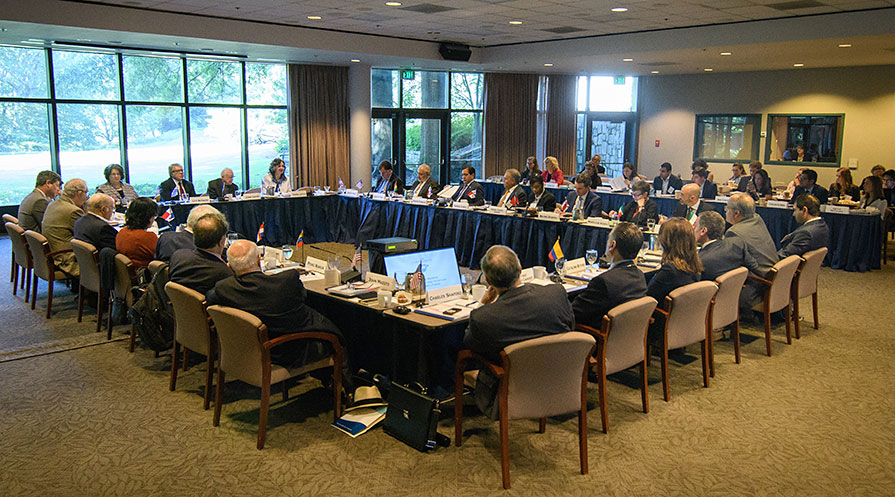
Building Democracy in the Americas: Based at The Carter Center, the Friends of the Inter-American Democratic Charter is a group of former presidents, prime ministers, and cabinet officials from across the region who discuss pressing issues and embark on missions of quiet diplomacy to try to help ease tensions and discourage democratic backsliding in the hemisphere.
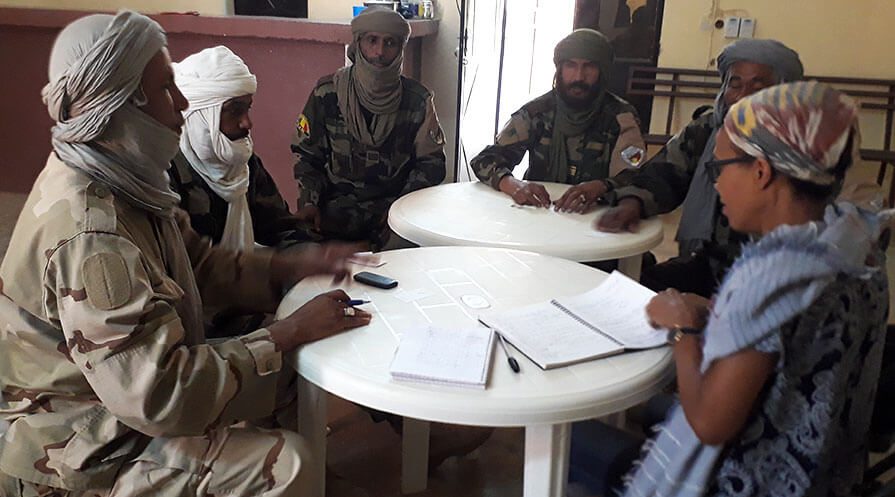
Monitoring Peace in Mali: In late 2017, The Carter Center was named the Independent Observer of the implementation of Mali’s 2015 Peace Agreement, the first time a nongovernmental organization has been asked to take on such a role. A team has spent the last year on the ground, speaking with key stakeholders to determine progress, identify obstacles, and issue recommendations about how to move forward. Here, the Center’s special advisor on Mali, Ambassador (ret.) Bisa Williams, meets with combatants who are signatories of the peace agreement.
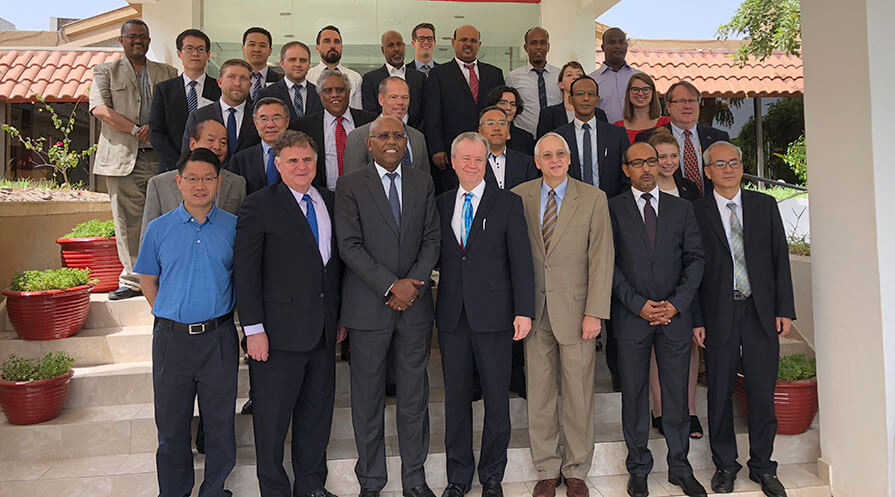
Promoting Good Relations with China: The U.S. and China are two of the world’s superpowers, and the relationship between them is often fraught with tension. The Carter Center organizes forums to foster greater understanding and cooperation between the two countries on issues of great importance. Recently, officials from the U.S., China, and Africa convened to assess how they might work together to create positive change in Africa.
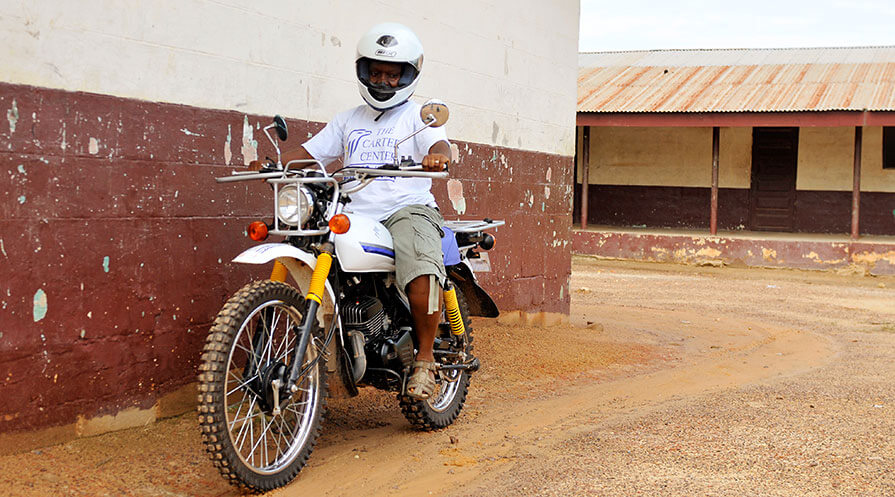
Access to Justice: Liberia’s justice system – like much of the rest of the country – lay in tatters at the end of its 14-year civil war. The Carter Center has worked to help rebuild that system to ensure that justice is available to all, not just those who can afford it. The Center partnered with the Catholic Justice and Peace Commission to hire and train more than 50 community justice advisors, who travel the country to tell people about their rights under the law and offer free mediation services as an alternative to the courts.